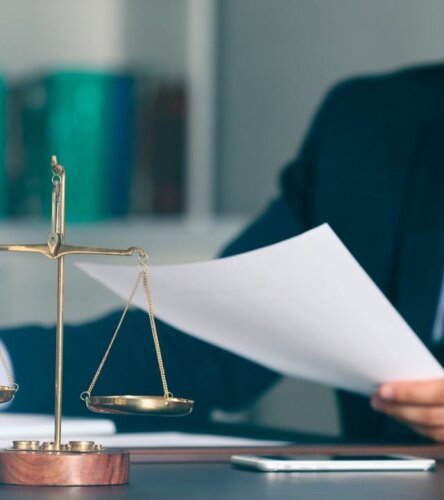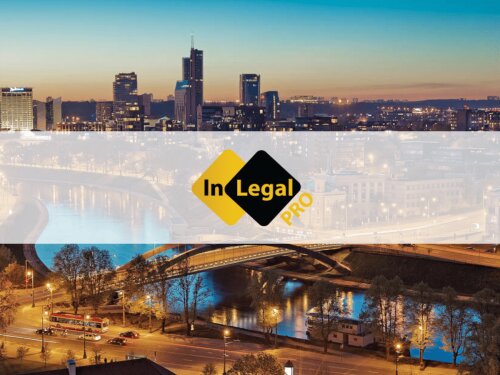Best Permanent Residency Lawyers in Republic of Lithuania
Share your needs with us, get contacted by law firms.
Free. Takes 2 min.
Or refine your search by selecting a city:
List of the best lawyers in Republic of Lithuania
About Permanent Residency Law in Republic of Lithuania
Permanent residency in the Republic of Lithuania allows foreign nationals to live and work in the country permanently. To obtain permanent residency, individuals must meet certain criteria set by the Lithuanian government, including having legal grounds for residing in the country and proving sufficient financial means to support themselves. Permanent residency can lead to citizenship after living in Lithuania for a specified period of time.
Why You May Need a Lawyer
Obtaining permanent residency in Lithuania can be a complex and lengthy process, and having a lawyer by your side can help ensure that all necessary steps are completed accurately and in a timely manner. A lawyer can assist with compiling the necessary documentation, navigating the legal process, and representing you in dealings with government authorities.
Local Laws Overview
The key aspects of Lithuanian law relevant to permanent residency include demonstrating legal grounds for residency, meeting financial requirements, and complying with any additional requirements set by the government. It is important to understand and abide by these laws to successfully obtain and maintain permanent residency in Lithuania.
Frequently Asked Questions
1. Can I work in Lithuania with permanent residency?
Yes, permanent residents of Lithuania have the right to work in the country.
2. How long does it take to obtain permanent residency in Lithuania?
The process can take several months to complete, depending on individual circumstances.
3. Can I apply for Lithuanian citizenship after obtaining permanent residency?
Yes, permanent residents can apply for citizenship after living in Lithuania for a specified period of time.
4. What are the financial requirements for permanent residency in Lithuania?
Applicants must be able to demonstrate sufficient financial means to support themselves during their stay in Lithuania.
5. Are there any restrictions on permanent residency in Lithuania?
Permanent residents must comply with Lithuanian law and may be subject to certain restrictions.
6. Can I bring family members to Lithuania with me as a permanent resident?
Family reunification is possible for permanent residents in Lithuania.
7. Do I need to speak Lithuanian to obtain permanent residency?
Knowledge of the Lithuanian language is not typically required for permanent residency, but it may be beneficial in some cases.
8. What documents do I need to apply for permanent residency in Lithuania?
Applicants typically need to provide a valid passport, proof of financial means, and other supporting documents.
9. Can I lose my permanent residency status in Lithuania?
Permanent residency can be revoked if the holder fails to comply with the conditions set by the Lithuanian authorities.
10. How can a lawyer help me with my permanent residency application?
A lawyer can assist with navigating the legal process, ensuring all requirements are met, and representing you in dealings with government authorities.
Additional Resources
For more information on permanent residency in Lithuania, you can visit the Migration Department of the Republic of Lithuania website or consult with a legal professional specializing in immigration law.
Next Steps
If you require legal assistance with your permanent residency application in Lithuania, it is advisable to seek out a reputable immigration lawyer who can guide you through the process and help you achieve your goal of obtaining permanent residency in the Republic of Lithuania.
Lawzana helps you find the best lawyers and law firms in Republic of Lithuania through a curated and pre-screened list of qualified legal professionals. Our platform offers rankings and detailed profiles of attorneys and law firms, allowing you to compare based on practice areas, including Permanent Residency, experience, and client feedback.
Each profile includes a description of the firm's areas of practice, client reviews, team members and partners, year of establishment, spoken languages, office locations, contact information, social media presence, and any published articles or resources. Most firms on our platform speak English and are experienced in both local and international legal matters.
Get a quote from top-rated law firms in Republic of Lithuania — quickly, securely, and without unnecessary hassle.
Disclaimer:
The information provided on this page is for general informational purposes only and does not constitute legal advice. While we strive to ensure the accuracy and relevance of the content, legal information may change over time, and interpretations of the law can vary. You should always consult with a qualified legal professional for advice specific to your situation.
We disclaim all liability for actions taken or not taken based on the content of this page. If you believe any information is incorrect or outdated, please contact us, and we will review and update it where appropriate.
Browse permanent residency law firms by city in Republic of Lithuania
Refine your search by selecting a city.












